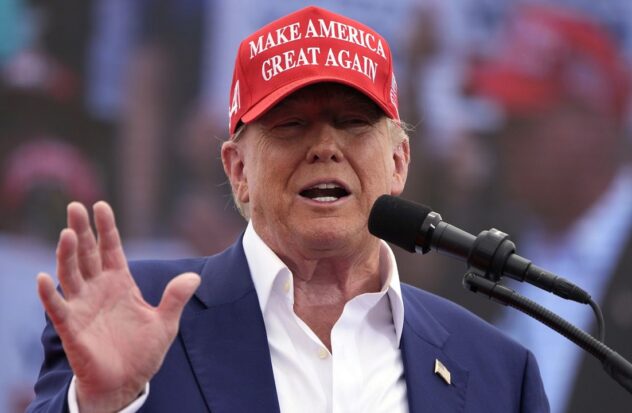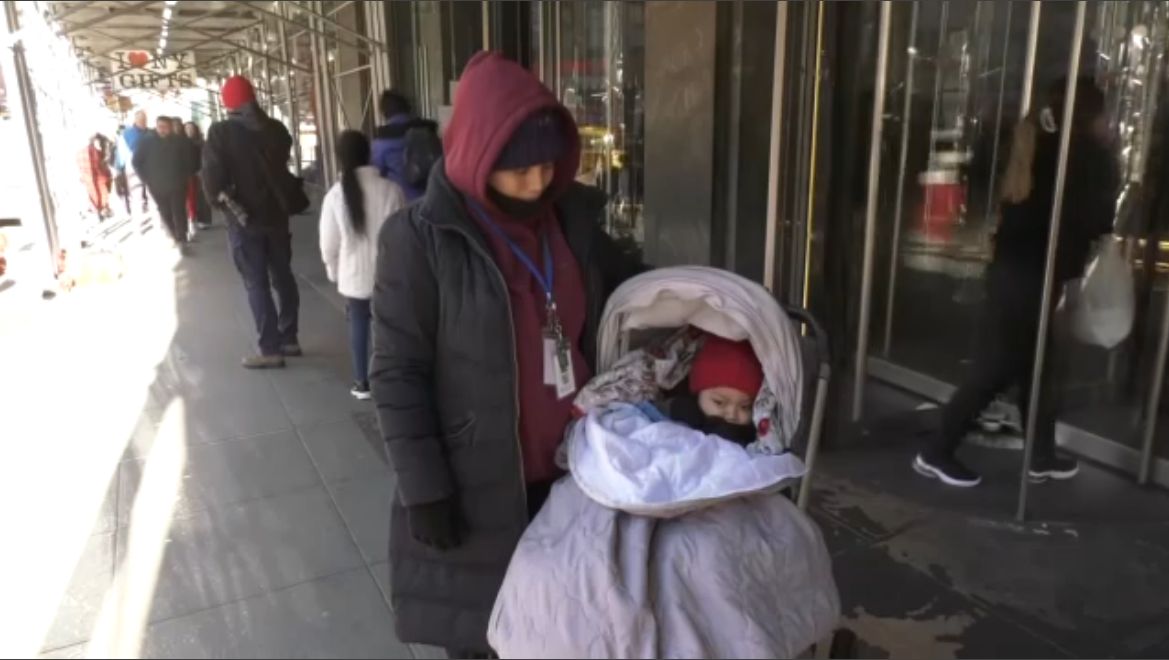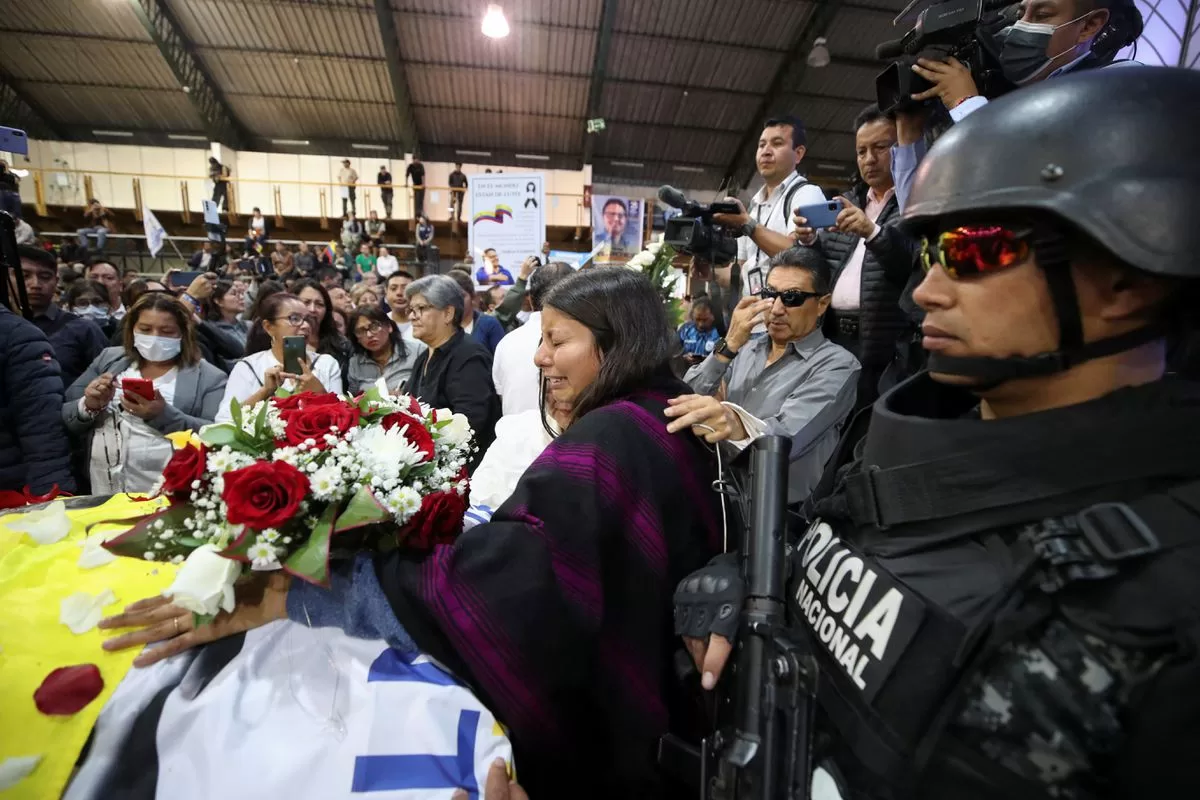The Supreme Court ruled for the first time Monday that former presidents have some immunity from prosecution, extending the delay in the criminal case in Washington against Donald Trump on charges that he conspired to overturn his 2020 presidential election loss and all but ending prospects that the former president could stand trial before the November election.
In a landmark 6-3 ruling, the justices returned Trump’s case to the lower court to determine what remains of special counsel Jack Smith’s indictment against Trump. The result means a further delay before Trump can face trial.
The court’s decision in a second major Trump case this term, along with its ruling rejecting efforts to exclude him from the ballot because of his actions after the 2020 election, underscores the direct and potentially uncomfortable role that judges are playing in the November election.
“Under our constitutional structure of separation of powers, the nature of presidential power entitles a former president to absolute immunity from criminal prosecution for actions within his conclusive and preclusive constitutional authority,” Chief Justice John Roberts wrote for the court. “And he is entitled, at the very least, to presumptive immunity from prosecution for all of his official acts. There is no immunity for unofficial acts.”
Roberts was joined by the other five conservative justices. The three liberal justices dissented.
“Today’s decision to grant criminal immunity to former presidents reconfigures the institution of the presidency. It makes a mockery of the principle, fundamental to our Constitution and system of government, that no man is above the law,” wrote Judge Sonia Sotomayor in a scathing dissent.
Sotomayor, who read a summary of her dissent aloud in the courtroom, said the court’s protection for presidents “is as bad as it gets and is baseless.”
Trump posted on his social media shortly after the decision was released: “GREAT WIN FOR OUR CONSTITUTION AND DEMOCRACY. PROUD TO BE AN AMERICAN!”
Smith’s office declined to comment on the ruling.
The justices struck out one aspect of the indictment. The opinion found that Trump is “absolutely immune” from prosecution for alleged conduct involving discussions with the Justice Department.
Trump is also “at least presumptively immune” from allegations that he tried to pressure Vice President Mike Pence to reject the certification of Democrat Joe Biden’s election victory on Jan. 6, 2021. Prosecutors may try to argue that Trump’s pressure on Pence can still be part of the case against him, Roberts wrote.
The ruling was the last of the term and came more than two months after the court heard arguments, much slower than other epic Supreme Court cases involving the presidency, including the Watergate tapes case.
The Republican former president has denied any wrongdoing and said this prosecution and three others are politically motivated to try to prevent him from returning to the White House.
In May, Trump became the first former president to be convicted of a felony in a New York court. He was found guilty of falsifying business records to cover up a hush money payment to a porn actress who says she had sex with him during the 2016 presidential election, which he denies. He still faces three other charges.
Smith leads the two federal investigations of the former president, both of which have led to criminal charges. The Washington case centers on Trump’s alleged efforts to overturn the 2020 election after losing to Biden. The Florida case revolves around mishandling of classified documents. The other case, in Georgia, also revolves around Trump’s actions after his 2020 loss.
If Trump’s trial in Washington does not take place before the 2024 election and he is not given another four years in the White House, he would presumably be tried soon after.
But if he wins, he could appoint an attorney general who would seek the dismissal of this case and the other federal prosecution he faces. He could also try to pardon himself if he takes back the White House. He couldn’t pardon himself if it weren’t on his own.
The Supreme Court that heard the case included three Trump-appointed justices — Amy Coney Barrett, Neil Gorsuch and Brett Kavanaugh — and two justices who chose not to step aside after questions were raised about their impartiality.
Justice Clarence Thomas’ wife, Ginni, attended the rally near the White House where Trump spoke on January 6, 2021, although she did not go to the Capitol when a mob of Trump supporters attacked him shortly afterward. After the 2020 election, he called it a “holdup” and exchanged messages with then-White House chief of staff Mark Meadows, urging him to stand firm with Trump while falsely claiming widespread voter fraud.
Justice Samuel Alito said there was no reason for him to step aside from cases following reports by The New York Times that flags similar to those carried by the Jan. 6 rioters were flying over his homes in Virginia and on the New Jersey shore. His wife, Martha-Ann Alito, was responsible for raising both the inverted American flag in January 2021 and the “Appeal to Heaven” banner in the summer of 2023, he said in letters to Democratic lawmakers responding to their demands for his recusal.
Trump’s trial was scheduled to begin on March 4, but that was before he requested court-sanctioned delays and a full review of the matter by the nation’s highest court.
Before the Supreme Court got involved, a trial judge and a three-judge appeals panel had ruled unanimously that Trump can be prosecuted for actions taken while he was in the White House and in the run-up to Jan. 6.
“For the purposes of this criminal case, former President Trump has become a Trump citizen, with all the defenses of any other criminal defendant,” the appeals court wrote in February. “But any executive immunity that may have protected him while he served as president no longer protects him from this prosecution.”
U.S. District Judge Tanya Chutkan, who will preside over the trial in Washington, ruled against Trump’s request for immunity in December. In her ruling, Chutkan said the office of president “does not grant a lifetime pass to get out of jail free.”
“Former presidents enjoy no special conditions of federal criminal liability,” Chutkan wrote. “The defendant may be subject to federal investigation, indictment, prosecution, conviction, and punishment for any criminal acts committed while in office.”
___
We invite you to visit us on the new NY1 Noticias channel on WhatsApp. There you will find the most relevant news about what is happening in New York, as well as other coverage about the rest of the country, Latin America and the world. click in this link to access the channel. We thank you in advance if you become one of our followers and express your reaction to what we publish with an emoji.






